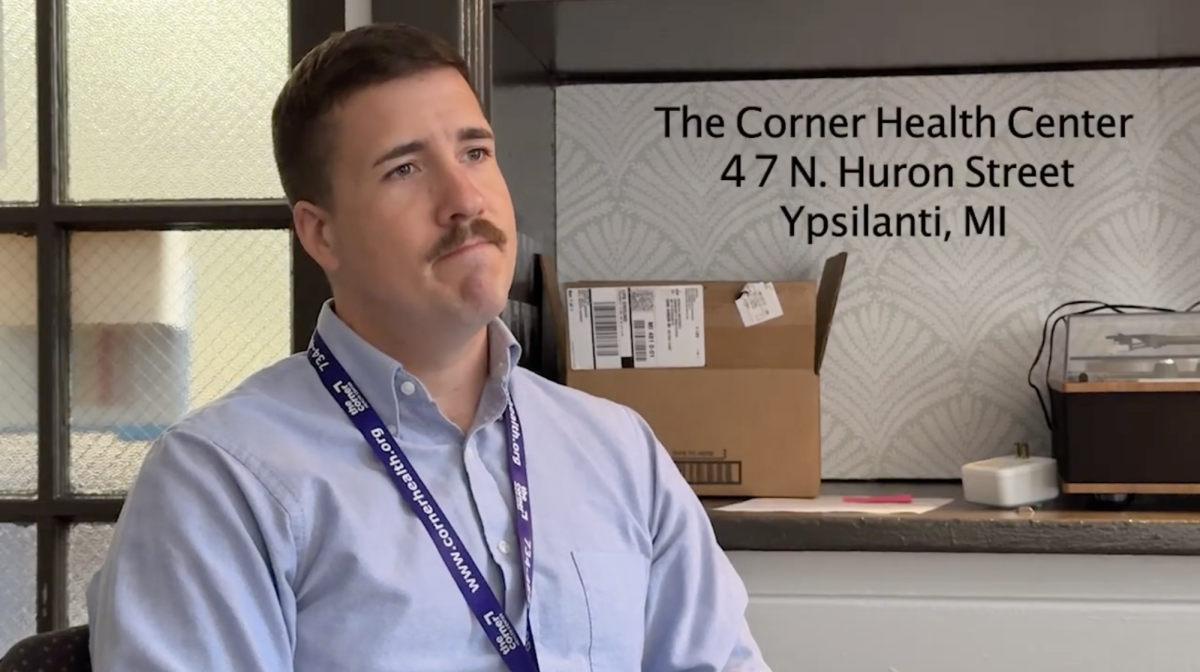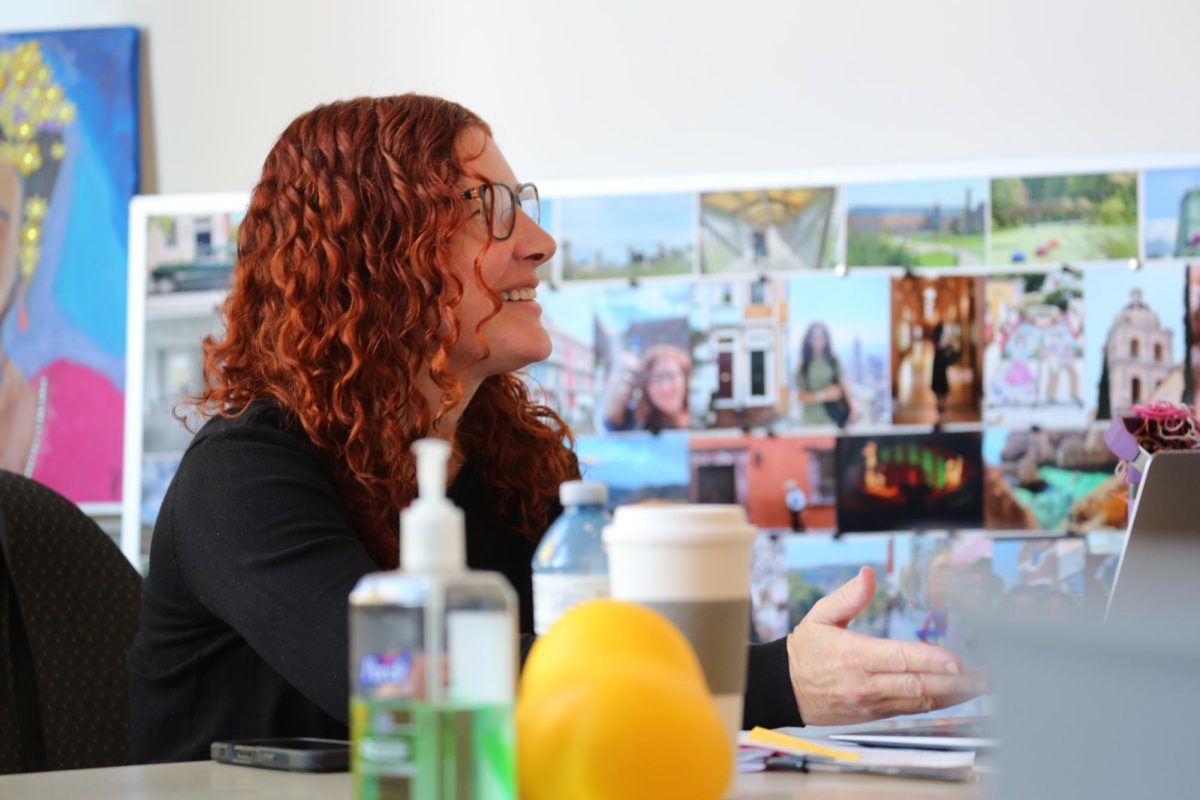Robbie Stapleton’s eyes expand and a smile spreads across her face as she gestures towards her classroom window. For her, back-to-back runs with two classes on a crisp, fall morning is what she believes contributes to her positive outlook on life.
“I have a great job,” said Stapleton, a health and personal fitness teacher at Community High School. “Doing what I get to everyday, you can’t help but be grateful for that. It sort of becomes like this, how did I get so lucky?” Studies conducted lately have explored the idea that this grateful attitude can be responsible for better mental, and possibly even physical, health.
Some believe that incorporating gratitude into daily life can positively change the way we feel. Stapleton likes to think of gratitude as more of a state of mind, rather than a short-term emotion.
“It is recognizing what we have to be grateful for, and having perspective,” she said.
For some students at Community, being more gracious has personally affected their mental health and perspective in life. Isaac Scobey-Thal, a sophomore at Community High School, believes that positive thinking has directly influenced his optimistic personality.
“[Being grateful] makes you more conscious of how good your situation is, and therefore, you realize that a lot of different issues in your life might not be as big as you play them out in your head to be,” he said.
Alona Henig, another sophomore at CHS, agrees with this belief.
“I think that perspective is a big part of it,” she said, “Maybe you’re having a bad day, but you look at someone holding the door open for you and you realize that people are there for you. It can definitely make you less hard on yourself.”
Research also supports the benefits of a positive mental outlook. In a recent study conducted by Dr. Robert Emmons, Professor of Psychology at the University of California, Davis, discussed in his book “thanks!”, three experimental groups were asked to write down five thoughts a day for ten weeks. The first group was required to write positive thoughts, the second group, daily hassles, and the last group, neutral feelings. When the ten weeks were over, the people in the positive category found themselves 25 percent happier and more optimistic about their future.
Studies have proven that optimistic, or happier, people have better physical health, too. Julia Boehm, a research fellow at the Harvard School of Public Health, read over 200 studies relating cardiovascular health and optimism. She found that happier individuals were 50 percent less susceptible to cardiovascular problems compared to their less optimistic peers.
Although some believe that a grateful outlook can positively affect mental health, others are not certain of the extent to which it could help people suffering from serious mental conditions and disorders. Linda Young, a clinical psychologist in private practice in Ann Arbor, questions the relationship between gratitude and being mentally healthy.
“We find the two going together,” said Young, “I think that, when somebody is feeling [depressed], it might for the moment help them to take stock of what they have in life, and be appreciative of it. However I don’t think that’s going to give them good ‘mental health.”
She adds why some might have difficulty experiencing gratitude.
“I think some people feel very guilty because they feel unhappy and they feel I should be grateful for what I have in my life. But for some reason they don’t because they have inner conflicts that are painful to them,” said Young.
The cause of this grateful attitude may come from a multitude of different factors. Scobey-Thal believes role models in his life have shaped his positive outlook. Still, he knows not everyone is blessed with such a fortunate situation.
“For someone who might not have a close knit family, or a safe home, they might look at situations in a more negative way because they’ve only known negative situations,” said Scobey-Thal. Others might say that people are born with this sort of perspective. Stapleton feels that some people are naturally prone to be more optimistic, while others may be more skeptical.
“I definitely believe in hardwired personalities,” she said.
A study conducted in 1996 by University of Minnesota researcher David Lykenn verifies this. Lykenn gathered information from over 4,000 twins, and studied how the role of genes played into happiness of fraternal as opposed to identical twins. He came to the conclusion that genes determine about 50 percent of one’s satisfaction in life.
However, that’s not to say people can’t overcome these tendencies.
“I think what it really means is that if you’re not hardwired to look at the positive, or have a gratitude consciousness, that it’s something you can really work at and will benefit you,” Stapleton said.
Integrating gratitude into daily life seems to allow for more positivity and possibly even better mental health in the long term. Scobey-Thal thinks this type of outlook could prompt a person to be more appreciative of life, especially if that means taking a bad situation and making it better.
“I want to make the most out of every minute. When you’re positive about everything, you get a lot more out of the little situations. Being gracious and having a positive attitude can do a lot,” he said.












